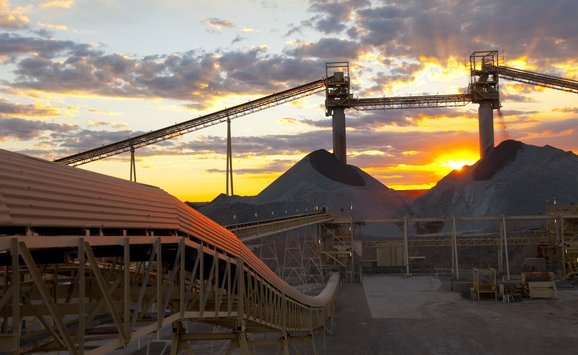Announcement of new Critical Minerals Research Lab: application submissions are welcome from PhD students who are conducting interdisciplinary, policy-relevant research on critical minerals for the clean energy transition.
As we transition to clean energy technologies, the question emerges of how to achieve a cost-effective, reliable, environmentally friendly, and equitable supply chain for critical minerals that can best support this transition. Policies are being crafted daily, such as the Biden administration’s new tax policy that hikes tariffs for critical mineral imports. These policies are seeking to balance a variety of issues, including increased domestic manufacturing and increased reliability of the supply chain. Understanding the impacts of these policies, and informing effective policies that avoid unintended consequences, requires cross-sectoral and interdisciplinary considerations. For example, policies that focus on shoring up domestic manufacturing need to consider the upward pressure these policies put on prices, in addition to their effects on the resiliency of the supply chain to geopolitical and trade shocks. The combined effect of these factors is a critical component in understanding the ability to electrify the US economy at the pace that the government hopes to achieve.
Importantly, policymaking can be, and often is, informed by research. When it comes to creating new policies around an emerging sector, such as critical minerals, research plays an increasingly prominent role in ensuring that the policies we seek to implement do not have unintended negative consequences. Yet, research that is not conducted from an interdisciplinary perspective could result in uninformed and problematic policy recommendations.
For example, engineering studies may find that a subsidy for battery chemistries that have more resilient supply chains would increase the adoption of electric vehicles, but these studies may ignore market forces (e.g., a lack of competition) that prevent these subsidies from actually reducing vehicle purchase prices and increasing adoption. Similarly, economic studies on import tariffs for critical minerals may ignore the differences in social impacts of mining across countries. However, research that is interdisciplinary can improve our understanding of the potential impacts of critical mineral policies and more accurately identify the impacts of proposed or ongoing policies. Thus, ramping up interdisciplinary research on these topics could improve policymaking around supply chains for critical minerals and facilitate progress in the clean energy transition.
Across the United States, PhD students who work on these issues are increasing in number. Within a few short years, an active cohort of knowledgeable PhD graduates will be ready to inform relevant policymaking. However, several challenges may get in the way of these students conducting research that is truly effective and that produces policy analyses that are actionable and useful in policymaking.
One challenge is that students across the country who are focusing their research on critical minerals have scarce opportunities to present their work and receive feedback from individuals who are immersed in interdisciplinary research on these topics. Conferences on critical minerals tend not to be research focused, or tend to be siloed into specific disciplines, which prevents a wider discussion of interdisciplinary research. Ramping up policy-relevant research on critical minerals that is interdisciplinary therefore can have significant implications for achieving effective, efficient, and equitable policymaking in the decades to come. To that end, in conjunction with professors at Carnegie Mellon University, Colorado School of Mines, and Stanford University, Resources for the Future will launch a new interdisciplinary research lab in fall 2024 for students who are working on critical minerals, with an effort to ensure that outgoing PhD students have the support they need to conduct impactful policy analysis.
Students from across the country will hone their research questions and approaches and, in turn, will improve the policy recommendations that emerge from their work.
The Critical Minerals Research Lab will be a virtual space for PhD students across multiple disciplines (including economics, engineering, sociology, geography, anthropology, and more), who are working on policy-relevant topics related to critical minerals and the clean energy transition, to meet and collaborate on new research topics. The lab will bring students together who have diverse backgrounds and work in various disciplines; provide opportunities for connection, feedback, and input; and foster interdisciplinary research ideas and partners. The lab also will help keep students informed about ongoing issues related to critical minerals, funding opportunities, proposed and upcoming legislation, conferences, and continuing policy discussions. By participating in the Critical Minerals Research Lab, students from across the country will hone their research questions and approaches and, in turn, will improve the policy recommendations that emerge from their work.
The lab will conclude in spring 2025 with a full-day, virtual, public conference in which Critical Minerals Research Scholars will present their work to stakeholders from government, industry, nonprofits, community groups, foundations, and more.
Students must apply and have approval from their advisor. The deadline for application submission is July 31. For more information on how to apply, sign up here for updates and visit the Critical Minerals Research Lab webpage.









